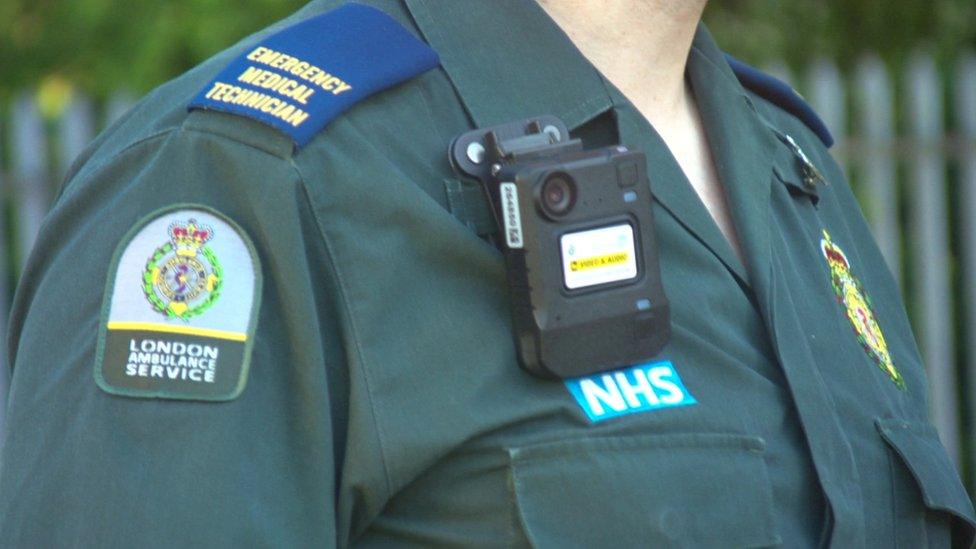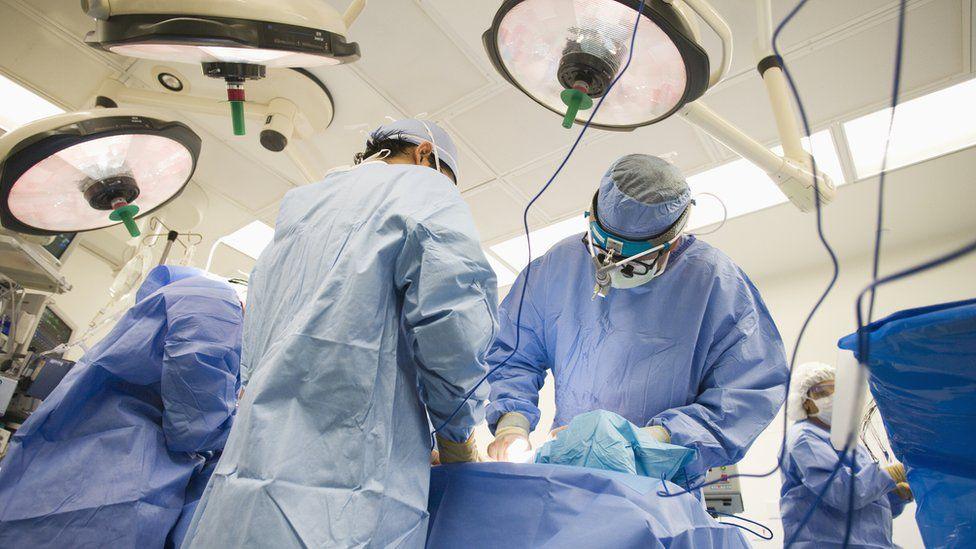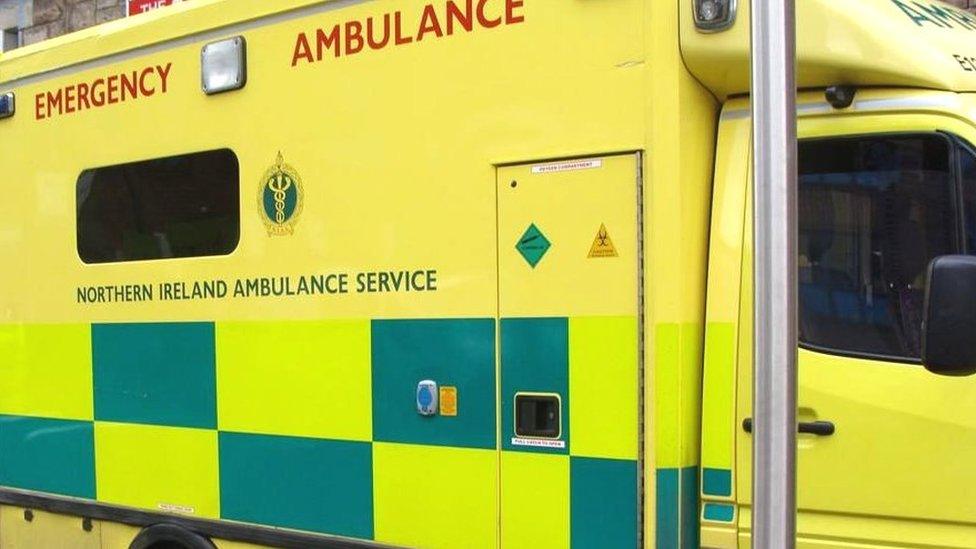NI nursing staff 'reconsidering jobs over verbal and physical abuse'
- Published

An emergency department (ED) nurse in Northern Ireland has said staff are reconsidering their jobs due to the verbal and physical abuse they encounter.
Stephen McKenna said he no longer feels safe at work because of the number of attacks on staff.
He has been working in an ED for four and a half years and said he had "never seen so many staff so deflated".
"So many staff are suffering from burnout," he told the BBC.
"They can't cope and yes, there are a lot of staff who are reconsidering a job in the emergency department given the amount of abuse that they take and the pressures from the waiting times and so on.
"We all go into work to do our best, we are in a job to help people and we really do want to try and help as many people as we can but you are fighting fire with fire some days.
"There's only so much you can do and at the end of the day unfortunately there's only so much abuse you can take before people actually break mentally and physically.
"I know recently I had a really tough night shift, just a few weeks ago, and for one of the first times in a long time I left work so deflated and on the verge of tears.
"I was that upset with the abuse that I had taken."
'Physically and verbally aggressive'
Mr McKenna told BBC NI's Good Morning Ulster that there had "always been an element of abuse, threatening and physical and verbal" in emergency departments in the UK, but that this had "increased drastically over the last few months as pressures from people not being able to access certain healthcare options have increased".
He said it was "leading to staff having to report incidents to the police in order to get resolution".

Ambulance workers in England are being given body-worn cameras following attacks
Mr McKenna said an emergency meeting had been held with the Royal College of Nursing on Thursday in a bid to tackle the issue.
Some of the suggestions from members included tougher sentences for perpetrators and the possibility of body-worn cameras being introduced for staff.
Last month, it was announced that ambulance workers in England will be given body-worn cameras, after assaults against them went up by almost a third in five years.
'Admiration into animosity'
Mr McKenna acknowledged the public's support for the NHS during the coronavirus pandemic, but said it was "really frustrating whenever we see such admiration turn in a lot of cases into animosity and that really does have an impact physically and psychologically on our nurses and medical staff".
In a statement, the Department of Health said that Health and Social Care (HSC) staff work "incredibly hard in a high-pressure environment delivering care for others and saving lives" and that "it is unacceptable that they should be subjected to any form of abuse".
"Each HSC trust operates a robust zero tolerance policy, overseen by a senior director," it added.
"The policy requires the provision of a working environment where employees can undertake their duties without fear of abuse or violence.
"The policy provides a means to manage and minimise the risk to employees.
"It aims to ensure that all staff are aware of, and are protected from, as far as is reasonably practical, violent or potentially violent situations that may occur within trust facilities and/or whilst staff are on duty."
The department said a group had also been established to review "existing policies and to develop a regional policy for the management of incidents of violence and aggression taking account of any recent policy/legislative change and best practice".
Related topics
- Published2 June 2021

- Published27 May 2021

- Published11 June 2020

- Published1 March 2019
